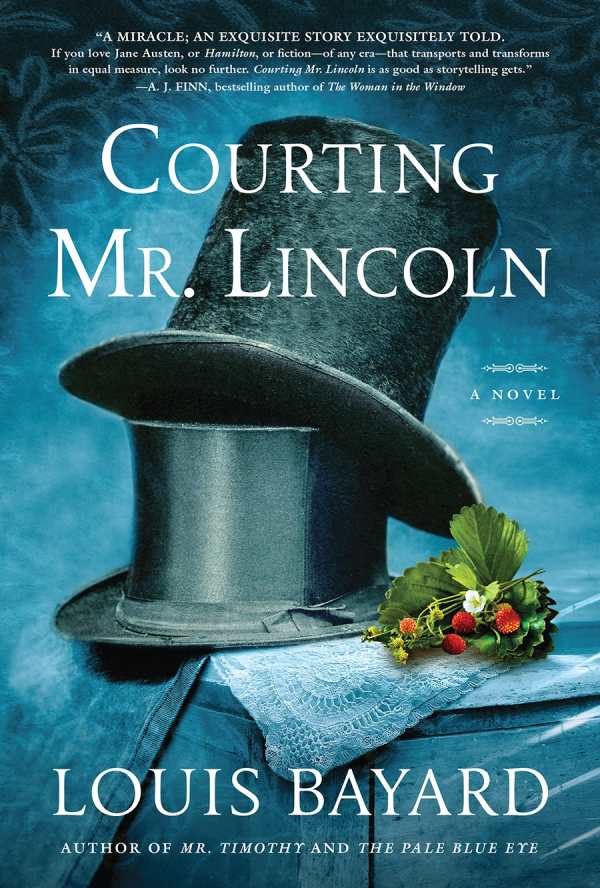Courting Mr. Lincoln
Louis Bayard’s Courting Mr. Lincoln begins its story of Lincoln when he was still a roughhewn Springfield lawyer whose potential was guarded by a friend and roommate, Joshua Speed, and admired by a politically minded debutante, Mary Todd. In tense, elegant prose, Lincoln and Todd’s alliance in the 1840s gathers force amid Speed’s sense of betrayal. With a masterful grasp of its characters, this moving reflection on Lincoln is an elegiac, illuminating portrait of love.
Sections alternate between Todd’s and Speed’s perspectives, and much of the dialogue is laced with a reticence that befits the manners of the era. What’s left unsaid creates subtle rifts that are almost too wide for the characters to bridge. The resulting drama is all the more intriguing for its emphasis on shaded, measured emotions.
The book pivots on the controversial belief that the real Speed—a general store owner and Kentucky gentleman—held a close fondness for Lincoln, though the book is careful not to overlay modern sensibilities. There’s never a scene of undeniable eroticism. The connection between Speed and Lincoln builds through Speed’s tutelage as he guides Lincoln through the finer points of etiquette, conversations, walks through town, and a tacit understanding of their brotherhood.
Considering their intensity, it’s not surprising that Speed takes it personally when Lincoln and Todd occupy each other’s time. What is surprising are the turns his character must take to accept it. Rewardingly, Todd is drawn as more than an interloper. Her youthful mistakes pair with an impressive intellect that Speed comes to respect.
In a haunting portrayal of unlived lives and paths that diverge, Courting Mr. Lincoln examines one of history’s unexpected triangles. Lincoln—seen before the height of his powers, through the eyes of two people who loved him—becomes an unusual, fascinatingly human, and sometimes brooding outsider who earns his place among Springfield’s elite.
Reviewed by
Karen Rigby
Disclosure: This article is not an endorsement, but a review. The publisher of this book provided free copies of the book to have their book reviewed by a professional reviewer. No fee was paid by the publisher for this review. Foreword Reviews only recommends books that we love. Foreword Magazine, Inc. is disclosing this in accordance with the Federal Trade Commission’s 16 CFR, Part 255.

